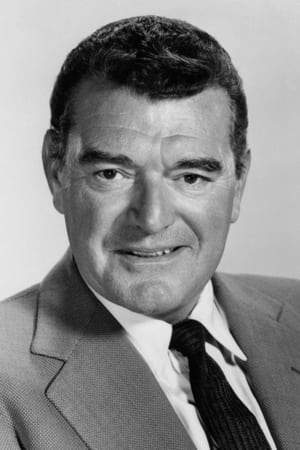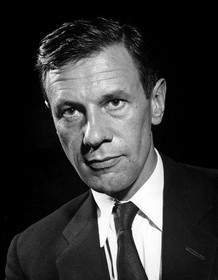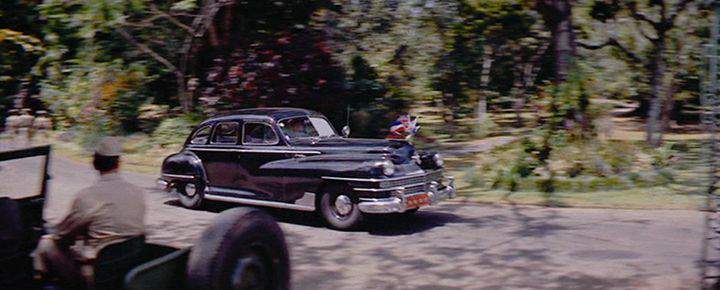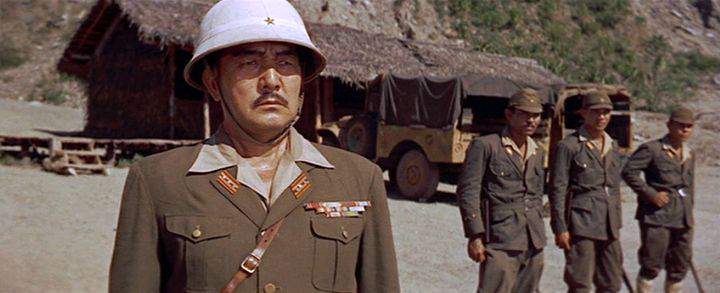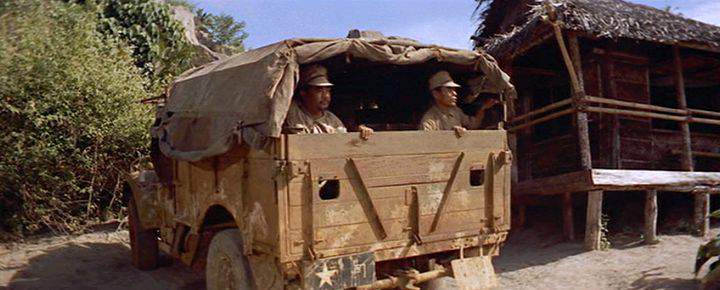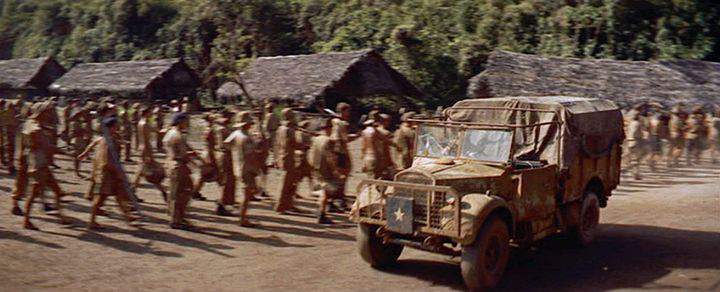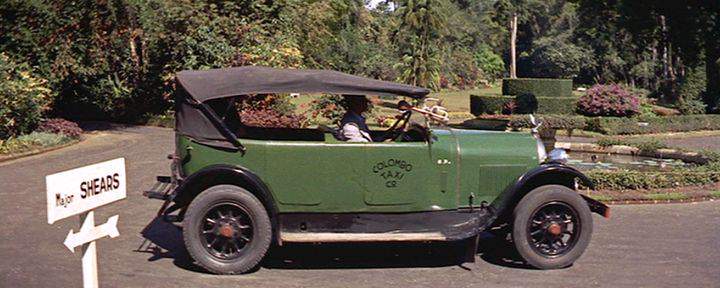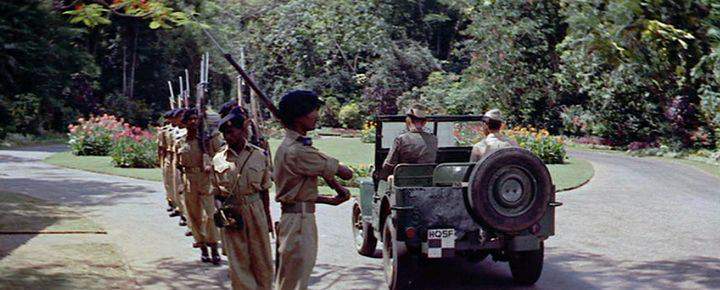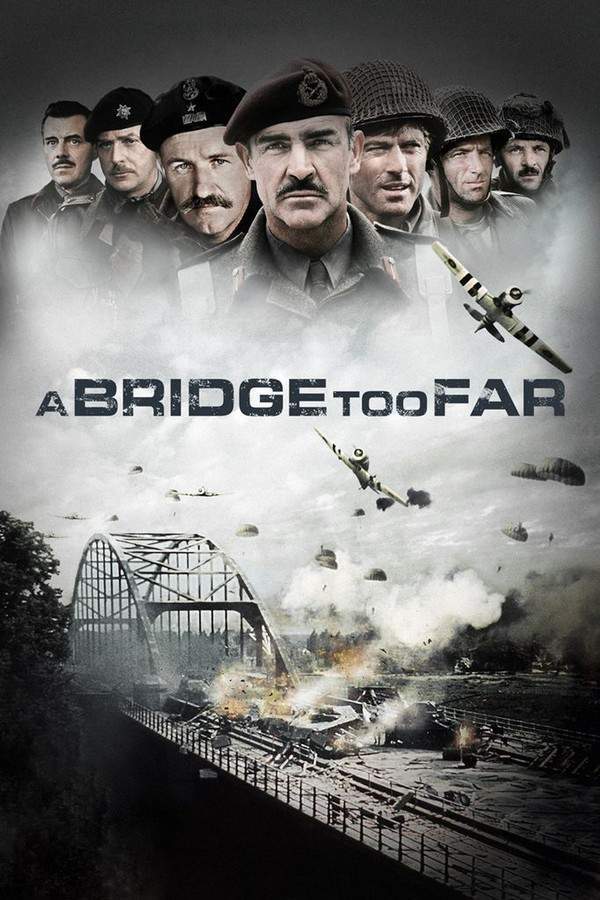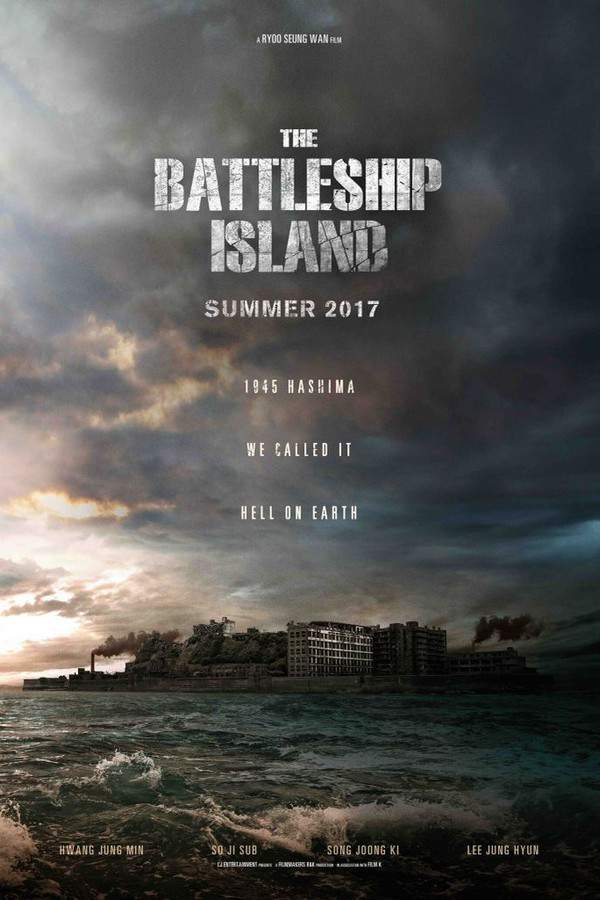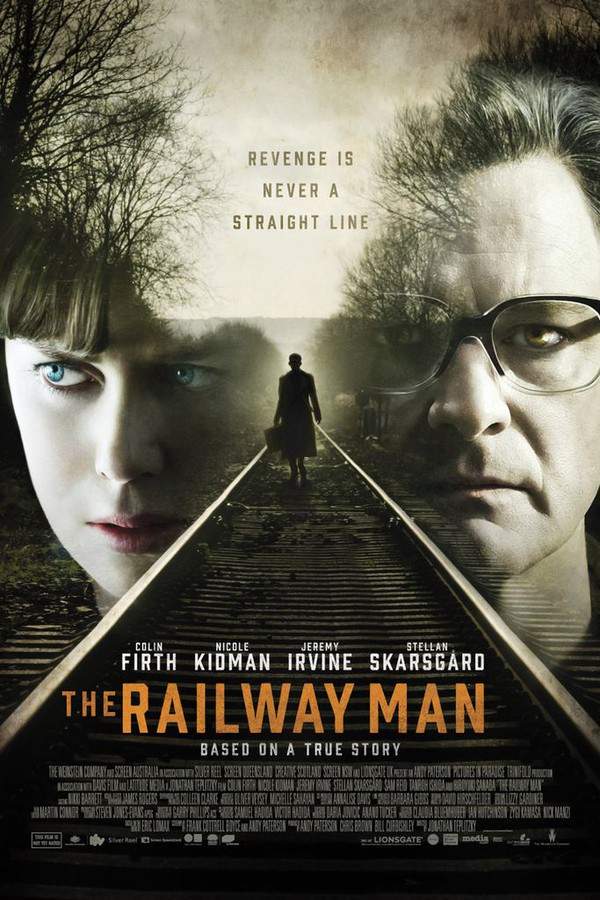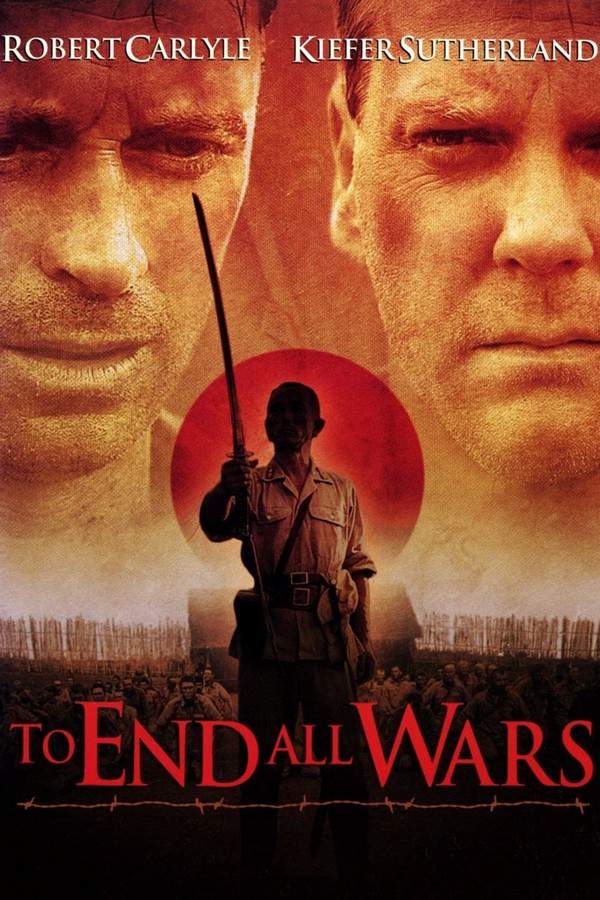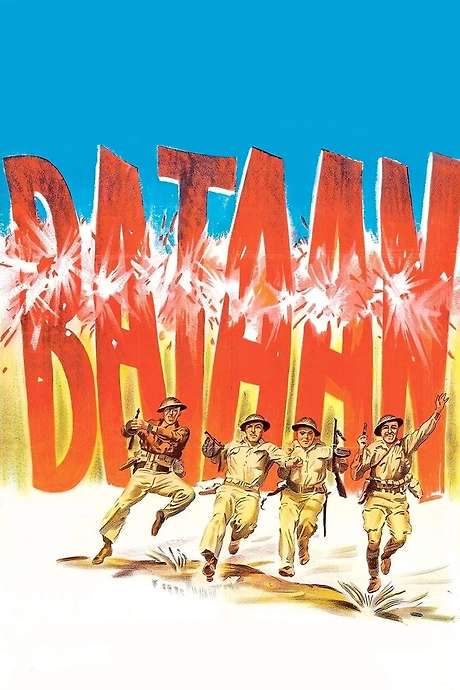The Bridge on the River Kwai 1957
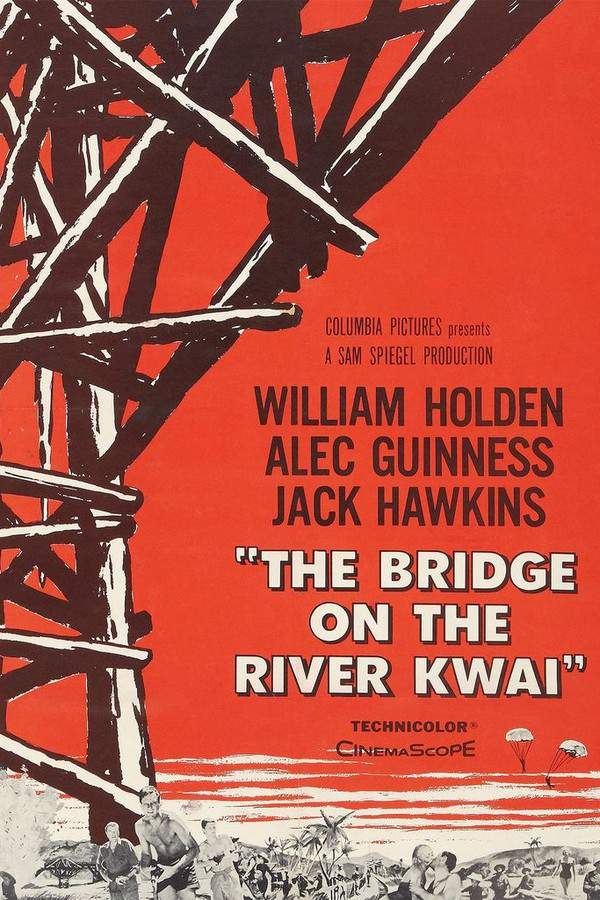
During World War II, Allied prisoners of war are forced by their Japanese captors to build a bridge across the River Kwai in Burma. A British colonel, obsessed with maintaining discipline and completing the project as a testament to British engineering, clashes with American officers who plot to sabotage the structure. The conflict escalates into a tense battle of wills with far-reaching consequences for both sides.
Does The Bridge on the River Kwai have end credit scenes?
No!
The Bridge on the River Kwai does not have end credit scenes. You can leave when the credits roll.
Meet the Full Cast and Actors of The Bridge on the River Kwai
Explore the complete cast of The Bridge on the River Kwai, including both lead and supporting actors. Learn who plays each character, discover their past roles and achievements, and find out what makes this ensemble cast stand out in the world of film and television.
External Links and Streaming Options
Discover where to watch The Bridge on the River Kwai online, including streaming platforms, rental options, and official sources. Compare reviews, ratings, and in-depth movie information across sites like IMDb, TMDb, Wikipedia or Rotten Tomatoes.
Ratings and Reviews for The Bridge on the River Kwai
See how The Bridge on the River Kwai is rated across major platforms like IMDb, Metacritic, and TMDb. Compare audience scores and critic reviews to understand where The Bridge on the River Kwai stands among top-rated movies in its genre.

88
Metascore
8.3
User Score


%
TOMATOMETER

0%
User Score

8.1 /10
IMDb Rating
Take the Ultimate The Bridge on the River Kwai Movie Quiz
Challenge your knowledge of The Bridge on the River Kwai with this fun and interactive movie quiz. Test yourself on key plot points, iconic characters, hidden details, and memorable moments to see how well you really know the film.
The Bridge on the River Kwai Quiz: Test your knowledge on the iconic World War II film, The Bridge on the River Kwai.
Who played the role of Colonel Nicholson?
Alec Guinness
William Holden
James Donald
Sessue Hayakawa
Show hint
Awards & Nominations for The Bridge on the River Kwai
Discover all the awards and nominations received by The Bridge on the River Kwai, from Oscars to film festival honors. Learn how The Bridge on the River Kwai and its cast and crew have been recognized by critics and the industry alike.
The 30th Academy Awards 1958
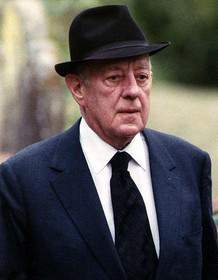
Cinematography
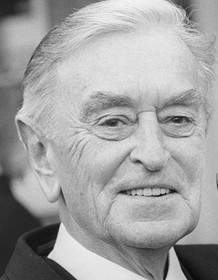
Film Editing
Music (Scoring)
Best Motion Picture
Writing (Screenplay—based on material from another medium)
11th British Academy Film Awards 1958
15th Golden Globe Awards 1958
Best Film - Drama


10th Directors Guild of America Awards 1957

Full Plot Summary and Ending Explained for The Bridge on the River Kwai
Read the complete plot summary of The Bridge on the River Kwai, including all major events, twists, and the full ending explained in detail. Explore key characters, themes, hidden meanings, and everything you need to understand the story from beginning to end.
Two prisoners of war are engaged in a solemn task, burying a corpse in the graveyard of a Japanese World War II prison camp located in southern Burma. One of them, American Navy Commander Shears, has a strategy to secure his comfort; he frequently bribes the guards to get sick duty, thus allowing him to dodge the grueling labor that awaits most prisoners.
A fresh group of British prisoners arrives, marching proudly while whistling the Colonel Bogey March, under the command of Colonel Nicholson. Nicholson emphasizes obedience, stating that the prisoners must comply with orders since they have surrendered upon the orders of their superiors. However, the Japanese camp commander, Colonel Saito, is adamant that all prisoners, regardless of their ranks, will participate in the construction of a bridge over the Kwai River for a railroad that connects all of Burma.
The tension escalates when Saito demands everyone work, while Nicholson insists that his officers are exempt from manual labor due to the Geneva Conventions. After a violent confrontation where Saito threatens to execute officers, he is eventually persuaded to reconsider by Major Clipton, a British medical officer among the captives, who warns that killing officers would lead to a scandal. Saito relents but leaves Nicholson and his officers to endure the harsh sun, resulting in the collapse of one of his men. Later, Nicholson faces further brutality when he is beaten in Saito’s quarters and thrown into solitary confinement.
As construction on the railroad bridge lags, primarily due to deliberate mishaps orchestrated by the British prisoners, Saito finds himself under immense pressure to complete the project. If he falters, it will lead to his dishonor and possibly Seppuku (ritual suicide). Reluctantly, he grants Nicholson an “amnesty” to commemorate a Japanese victory, allowing the officers to avoid labor. With newfound freedom, Nicholson strides through the camp, filled with pride.
Post-ordeal, though physically intact, Nicholson is taken aback upon inspecting the disarray at the construction site. Determined to outdo his captors, he orders Captain Reeves and Major Hughes to devise better plans for the bridge, hoping to showcase British ingenuity and boost morale amidst the grim atmosphere of captivity.
Meanwhile, Shears and two others make a valiant escape attempt. Tragically, two are killed during their flight; Shears, shot and swept away by the river, eventually finds himself in a Siamese village where the locals nurse him back to health. He ends up in a British hospital in Colombo, Sri Lanka, where he becomes embroiled with a charming nurse.
One day, Major Warden from the British Special Forces requests an audience with Shears. He’s on a perilous mission to demolish the Kwai bridge and believes Shears’ local knowledge would be invaluable. Shears, however, reveals that he is not a Commander, but merely an enlisted Navy man who assumed the identity of a deceased officer for better treatment in captivity. After a moment of dilemma, Warden offers him a simulated rank in exchange for his aid on the operation, which Shears ultimately accepts, realizing survival is paramount.
Back at the prison camp, Nicholson successfully convinces the Japanese that a more suitable location for the bridge should be chosen. In a moment of surprising maneuverability, he abandons the original structure for a new one, instructing his men fervently as the deadline approaches. Clipboard, however, can only observe in disbelief as Nicholson fervently pushes his men, even allowing junior officers to lend a hand, which stands in stark contrast to his former stance regarding labor.
Simultaneously, the commandos make their descent from the skies. Unfortunately, one officer’s parachute misfires, resulting in fatal injury. With assistance from village chiefs and porters, they maneuver toward the river, but they are confronted by a Japanese patrol. In the chaos, Warden springs into instant action, but not without consequence as he suffers a gunshot wound. Nonetheless, Shears refuses to abandon his fellow operatives, and they push on toward their target.
As the prison celebrates the bridge’s completion, hidden plans unfold beneath it as Shears and Joyce wire explosives. The morning light brings a surreal realization as they see the explosives exposed due to the river’s receding waters. Nicholson, filled with pride, inspects the bridge when chaos ensues—an explosive revelation that shatters confidence. As train tracks ready for use by a Japanese train filled with soldiers, a confrontation ignites with Nicholson, Saito, and Joyce caught in a crossfire.
In a moment of impending doom, Nicholson gasps, > “What have I done?” as if awakening from a fog. What follows is a harrowing culmination; despite their intentions, life and death blur as the detonator is activated. With sacrifice and tragedy interwoven, the bridge explodes, sending the train plummeting into the river.
Warden, amidst the wreckage, struggles with guilt, exclaiming, “I had to do it! They might have been taken alive! It was the only thing to do!” Meanwhile, Major Clipton silently observes the reality of war, shaken and distressed, wondering, “Madness! … Madness!” as the heart-wrenching consequences of their choices unfold.
Uncover the Details: Timeline, Characters, Themes, and Beyond!

Coming soon on iOS and Android
The Plot Explained Mobile App
From blockbusters to hidden gems — dive into movie stories anytime, anywhere. Save your favorites, discover plots faster, and never miss a twist again.
Sign up to be the first to know when we launch. Your email stays private — always.
Watch Trailers, Clips & Behind-the-Scenes for The Bridge on the River Kwai
Watch official trailers, exclusive clips, cast interviews, and behind-the-scenes footage from The Bridge on the River Kwai. Dive deeper into the making of the film, its standout moments, and key production insights.
Cars Featured in The Bridge on the River Kwai
Explore all cars featured in The Bridge on the River Kwai, including their makes, models, scenes they appear in, and their significance to the plot. A must-read for car enthusiasts and movie buffs alike.
The Bridge on the River Kwai Themes and Keywords
Discover the central themes, ideas, and keywords that define the movie’s story, tone, and message. Analyze the film’s deeper meanings, genre influences, and recurring concepts.
The Bridge on the River Kwai Other Names and Titles
Explore the various alternative titles, translations, and other names used for The Bridge on the River Kwai across different regions and languages. Understand how the film is marketed and recognized worldwide.
Similar Movies To The Bridge on the River Kwai You Should Know About
Browse a curated list of movies similar in genre, tone, characters, or story structure. Discover new titles like the one you're watching, perfect for fans of related plots, vibes, or cinematic styles.
Quick Links: Summary, Cast, Ratings, More

What's After the Movie?
Not sure whether to stay after the credits? Find out!
Explore Our Movie Platform
New Movie Releases (2026)
Famous Movie Actors
Top Film Production Studios
Movie Plot Summaries & Endings
Major Movie Awards & Winners
Best Concert Films & Music Documentaries
Movie Collections and Curated Lists
© 2026 What's After the Movie. All rights reserved.




